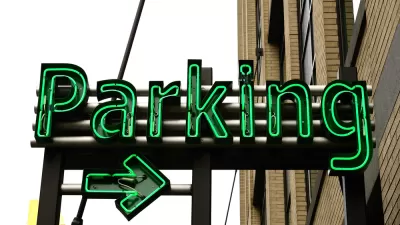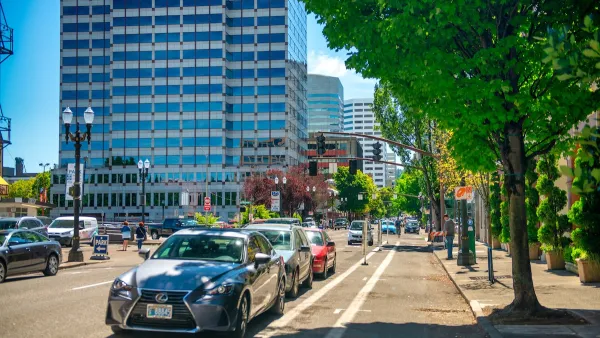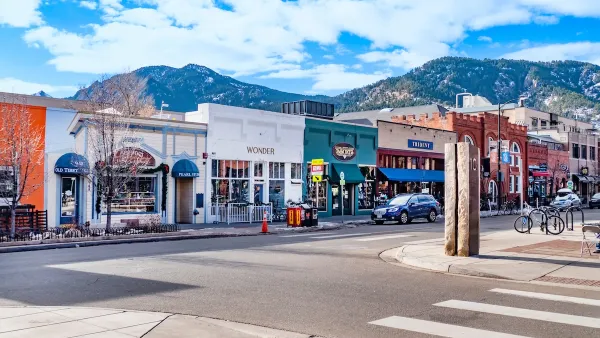Rather than trying to make parking lots with expensive surfaces that cost to maintain, Portland should eliminate its parking minimums, according to this article.

Surface parking lots in urban areas cause a number of different problems. They take up space that could be used for housing, they make it cheaper to drive, which effects a city’s air quality, they add to the urban heat shielding of the city, and, because they don't absorb rain, they put pressure on water systems. Portland officials have proposed legislation to mandate developers solve two of these problems in future developments by forcing developers to use permeable surfaces. This would mean these spaces wouldn't reflect as much heat or push as much water in to sewers, but they wouldn't come cheap.
"If Portland planners are honestly concerned about urban heat and the environment then they should propose eliminating minimum parking requirements," Tony Jordan argues in PDX Shoupistas. This strategy, recently employed by Mexico City, would eliminate some of these lots altogether, and instead of making development more expensive, which would in turn drive up the cost of housing, it would make some developments less expensive. Accomplishing two goals in a city that is becoming more expensive.
"Planners and officials might be worried that neighbors will complain about developments with fewer parking stalls, but maybe it’s time to show city officials and planners that people concerned about housing affordability, climate change, and traffic safety can make just as much, or maybe more, noise," Jordan writes.
FULL STORY: Portland Plans To Make Parking More “Green” And More Expensive

Maui's Vacation Rental Debate Turns Ugly
Verbal attacks, misinformation campaigns and fistfights plague a high-stakes debate to convert thousands of vacation rentals into long-term housing.

Planetizen Federal Action Tracker
A weekly monitor of how Trump’s orders and actions are impacting planners and planning in America.

Chicago’s Ghost Rails
Just beneath the surface of the modern city lie the remnants of its expansive early 20th-century streetcar system.

Bend, Oregon Zoning Reforms Prioritize Small-Scale Housing
The city altered its zoning code to allow multi-family housing and eliminated parking mandates citywide.

Amtrak Cutting Jobs, Funding to High-Speed Rail
The agency plans to cut 10 percent of its workforce and has confirmed it will not fund new high-speed rail projects.

LA Denies Basic Services to Unhoused Residents
The city has repeatedly failed to respond to requests for trash pickup at encampment sites, and eliminated a program that provided mobile showers and toilets.
Urban Design for Planners 1: Software Tools
This six-course series explores essential urban design concepts using open source software and equips planners with the tools they need to participate fully in the urban design process.
Planning for Universal Design
Learn the tools for implementing Universal Design in planning regulations.
planning NEXT
Appalachian Highlands Housing Partners
Mpact (founded as Rail~Volution)
City of Camden Redevelopment Agency
City of Astoria
City of Portland
City of Laramie





























